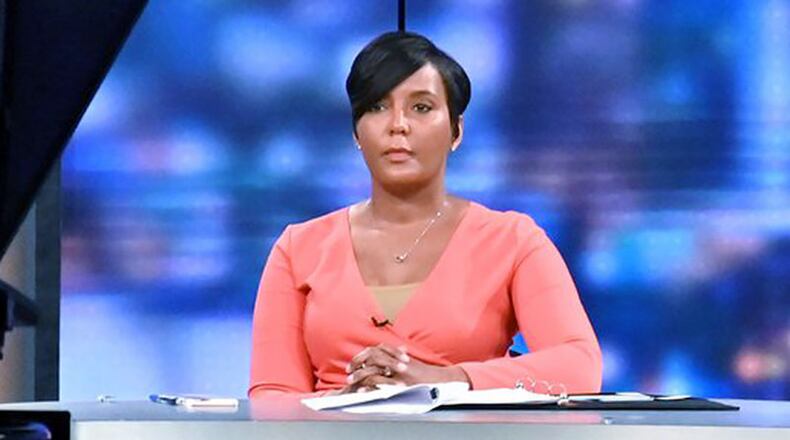Gov. Brian Kemp is facing calls to suspend a little-known state law adopted nearly 70 years ago to combat the Ku Klux Klan to clear the way for more Georgians to wear protective masks to prevent the spread of the coronavirus.
The head of the Democratic Party of Georgia penned a letter urging the governor to suspend the 1951 law, which makes it illegal to wear a mask at most public events, because state officials "need to encourage Georgians to wear face coverings when out in public, not punish them for it."
And Atlanta Mayor Keisha Lance Bottoms ordered the city's police officers not to enforce the law after reading a report that two black men were forced out of a Walmart in Illinois because they wouldn't take off their surgical masks.
The pressure underscores concerns from elected officials who fear that racial bias will discourage African-Americans from wearing masks, even as the Centers for Disease Control and Prevention urges Americans to cover their faces.
The pandemic has disproportionately afflicted black residents in Georgia and across the nation, and limited testing and data complicates efforts to determine measures to stop the spread.
Kemp said through a spokeswoman that he is considering his options. Using emergency powers he recently extended, he has the power to suspend state laws if deemed necessary to stem the outbreak.
“According to the CDC, wearing a mask in public may mitigate the spread of coronavirus,” said the spokeswoman, Candice Broce. “We are reviewing state law to ensure there are no unnecessary obstacles to following this guideline.”
The law bans the wearing of masks, hoods or other devices that conceal a person’s identity if they’re on public property or on private property where the owner has not consented. It includes exceptions for those who need to wear masks for trade and employment, as well as a range of events such as holidays, theatrical productions, civil emergencies and athletic competitions.
Similar laws have been adopted by about a dozen states, most aimed at weakening the KKK in the middle of the 20th century. Georgia’s version was upheld by the state Supreme Court in 1990 after a Klansman donned a hood on the Lawrenceville Square, citing his First Amendment rights.
Over the years, Georgia's anti-mask law has mostly been used to target KKK demonstrations, though it has also been employed to arrest demonstrators objecting to white power groups. Authorities cited the law in the 2018 arrests of several demonstrators who gathered in Newnan to protest a neo-Nazi rally.
In a strange turn, it was also invoked ahead of a press conference in 2017 at the Gold Dome, when supporters of then-Lt. Gov. Casey Cagle threatened to hire performers in circus masks to interrupt a rival’s event. The clowns never showed up.
State Sen. Nikema Williams, the chairwoman of the state Democratic party, said she was compelled to write Kemp after her husband told her how “uncomfortable it was to wear a mask in stores because folks get intimidated and look at him like he’s up to no good.”
Williams told the governor she worries racial profiling by law enforcement will “only get worse for people of color who wear homemade cloth coverings.”
“At a time when the black community is over-represented in COVID-19 cases, we need to protect our communities, and ensure that they will remain safe when trying to flatten the curve and save lives,” wrote Williams, who is recovering from a bout with the disease.
About the Author
The Latest
Featured





